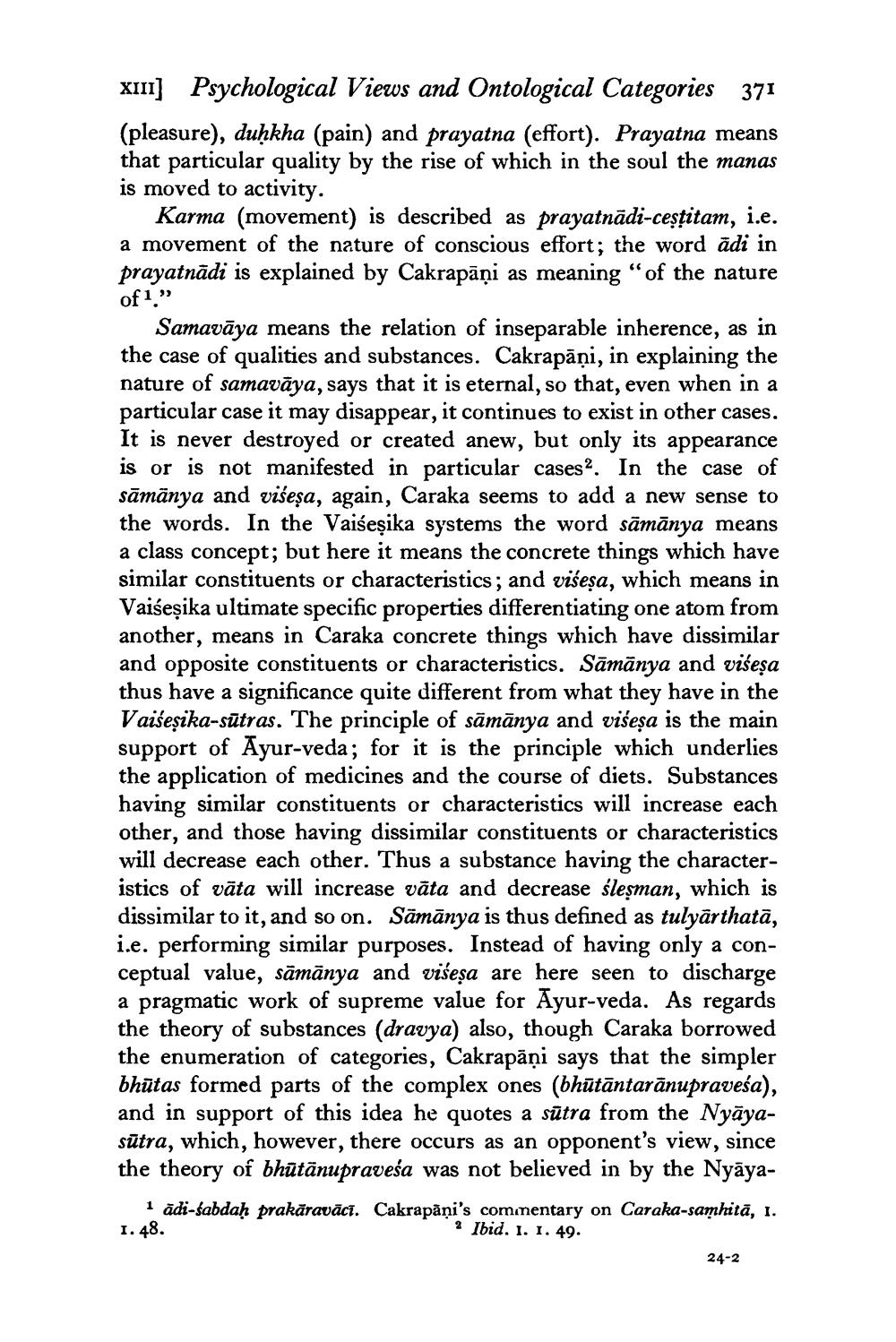________________
XIII] Psychological Views and Ontological Categories 371 (pleasure), duḥkha (pain) and prayatna (effort). Prayatna means that particular quality by the rise of which in the soul the manas is moved to activity.
Karma (movement) is described as prayatnādi-ceșțitam, i.e. a movement of the nature of conscious effort; the word ādi in prayatnādi is explained by Cakrapāņi as meaning “of the nature
of 1."
Samavāya means the relation of inseparable inherence, as in the case of qualities and substances. Cakrapāņi, in explaining the nature of samavāya, says that it is eternal, so that, even when in a particular case it may disappear, it continues to exist in other cases. It is never destroyed or created anew, but only its appearance is or is not manifested in particular cases. In the case of sāmänya and višeşa, again, Caraka seems to add a new sense to the words. In the Vaiseșika systems the word sāmānya means a class concept; but here it means the concrete things which have similar constituents or characteristics; and višeșa, which means in Vaiseșika ultimate specific properties differentiating one atom from another, means in Caraka concrete things which have dissimilar and opposite constituents or characteristics. Sāmānya and višeşa thus have a significance quite different from what they have in the Vaišeșika-sūtras. The principle of sāmānya and višeșa is the main support of Ayur-veda; for it is the principle which underlies the application of medicines and the course of diets. Substances having similar constituents or characteristics will increase each other, and those having dissimilar constituents or characteristics will decrease each other. Thus a substance having the characteristics of vāta will increase vāta and decrease śleşman, which is dissimilar to it, and so on. Sāmānya is thus defined as tulyarthatā, i.e. performing similar purposes. Instead of having only a conceptual value, sāmānya and višeșa are here seen to discharge a pragmatic work of supreme value for Ayur-veda. As regards the theory of substances (dravya) also, though Caraka borrowed the enumeration of categories, Cakrapāņi says that the simpler bhūtas formed parts of the complex ones (bhūtāntarānupraveśa), and in support of this idea he quotes a sūtra from the Nyāyasūtra, which, however, there occurs as an opponent's view, since the theory of bhūtānupraveśa was not believed in by the Nyāya
1 ādi-sabdah prakāravācī. Cakrapāņi's commentary on Caraka-samhitā, 1. 1.48.
2 Ibid. 1. I. 49.
24-2




